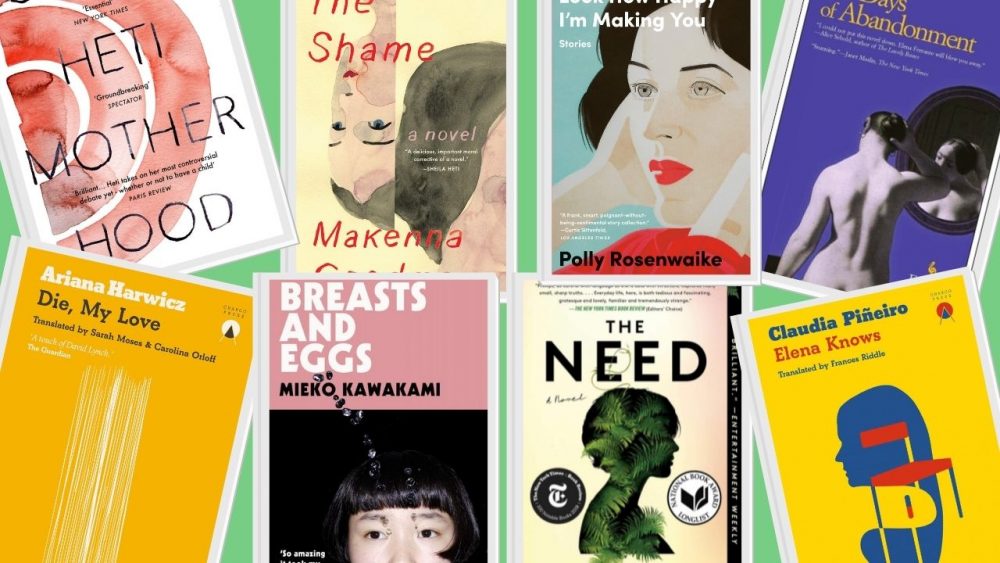In times and places of hate, the two most powerful acts that can dispel that hate quickly are talking with people of different backgrounds and, failing that, reading their stories. These books about refugees and migrants, and the experiences they’ve lived, are vital reading for anyone wishing to better understand their fellow humans.
Moving to a new country is never easy. Whether you intend to do so permanently or temporarily, whether you have financial means or not, whether you are forced to do so due to circumstance or out of fear, whether you speak the local language, almost everyone feels isolation to an extent.
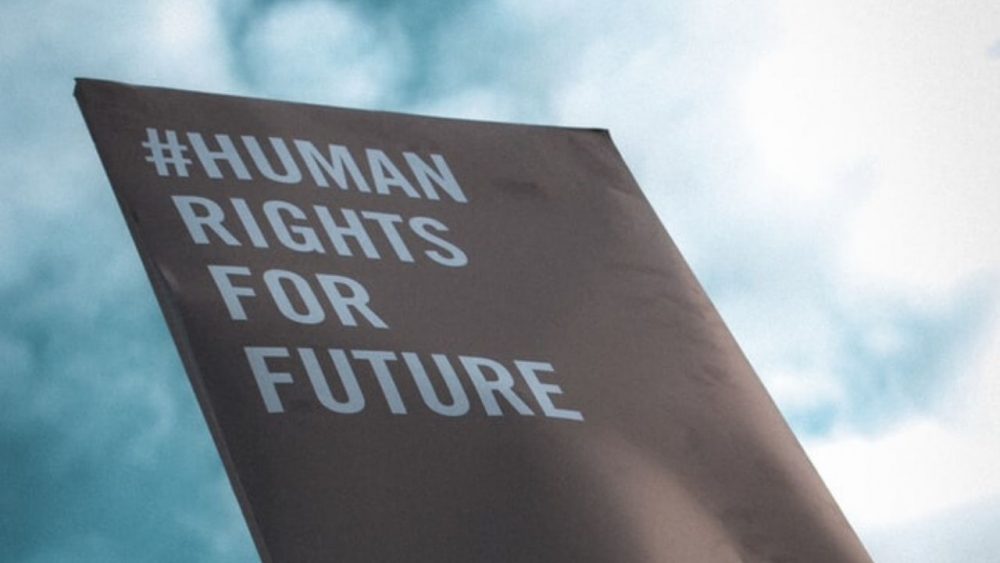
While I myself was, for a brief time, a foreigner living in the UK, I cannot speak to the experience of a Black, Indigenous, or Person of Colour’s experience living there. Nor can I speak to the experience of an Eastern European living in the UK.
But these books about refugees, migrants, and their struggles matter because so many of us can’t understand their lived experience. If you’re interested in the realities of life in the UK for refugees and immigrants, here are the best books about refugees that moved me and that I think everyone should read.
If you’re interested in supporting refugees in the UK, consider donating to Gatwick Detainees Welfare Group.
Are You Happy With That? By People Seeking Sanctuary
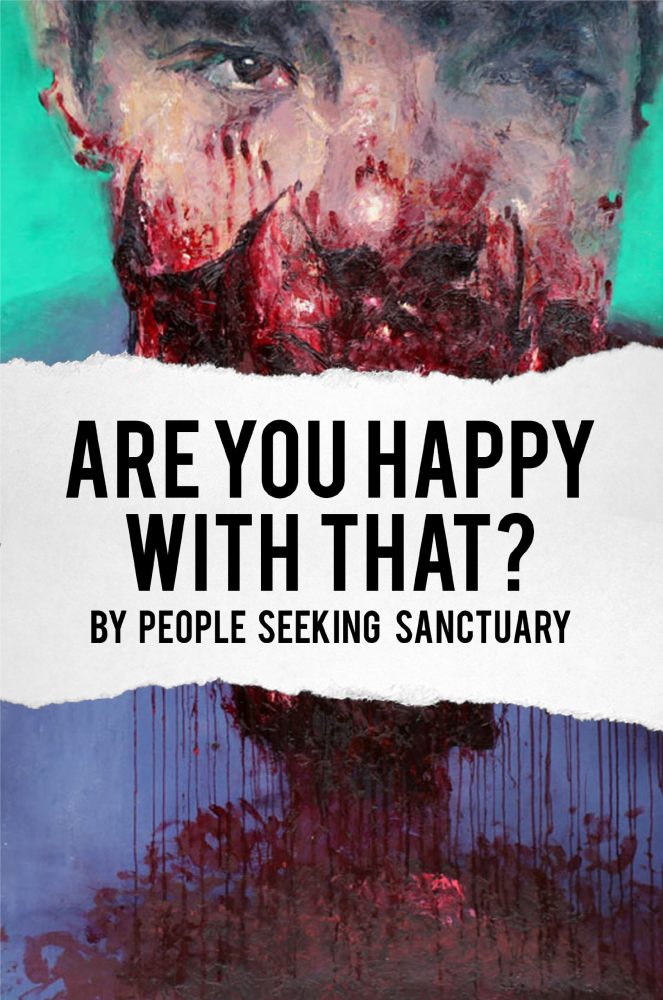
Are You Happy With That? is an anthology put together by Hafan Books that showcases the voices of refugees and asylum seekers in Wales. One of the best books about refugees for people looking to be enlightened. The collection features poems, short stories, essays and photographs from writers around the world, particular across Africa. There are also a handful of pieces from allies across Europe.
The voices in Are You Happy With That? are only snapshots, but they share with the reader their pain, their fear and their hope. If you enjoy these kinds of anthologies, Hafan Books has another collection called My Heart Loves My Language
The Good Immigrant Nikesh Shukla
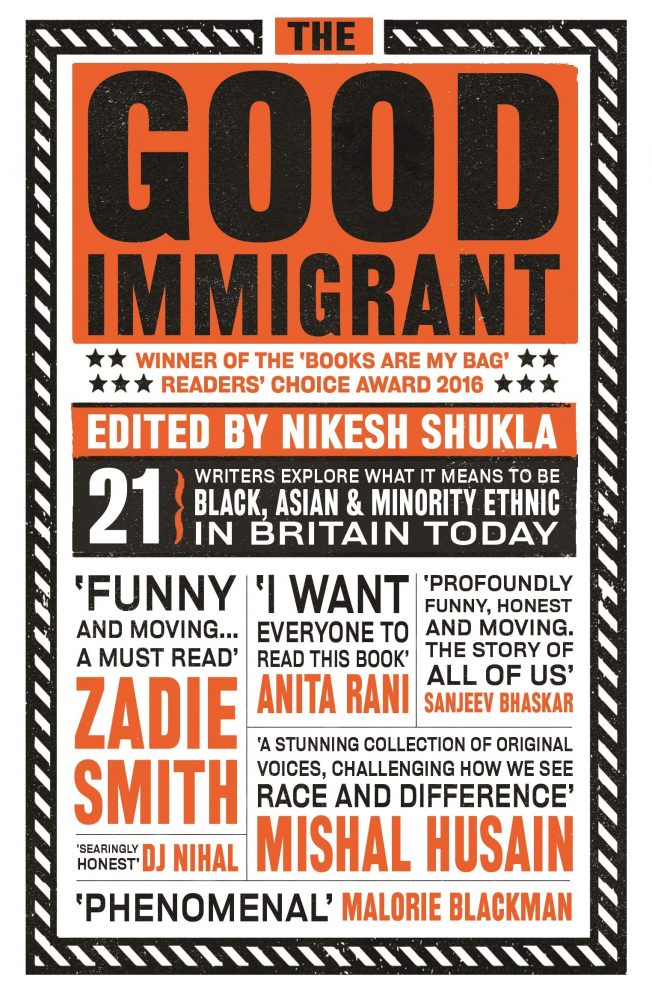
If you want to have your notions of racism or immigrants turned on their head, read this book; one of the most moving books about refugees you can ever read. Although many of the writers featured in The Good Immigrant were born and raised in the UK, the book is still very much about immigration as it examines the history of and reasons behind immigration.
The Good Immigrant is very much about the notion of being othered no matter how much you try to fit in; no matter how British you are, you’re still called racial slurs or asked ‘But where are you really from?’ The true stories within are told by Brits of various ethnic backgrounds and highlight the truly insidious nature of the everyday micro-aggressions acted out against people of colour.
Refugee Tales
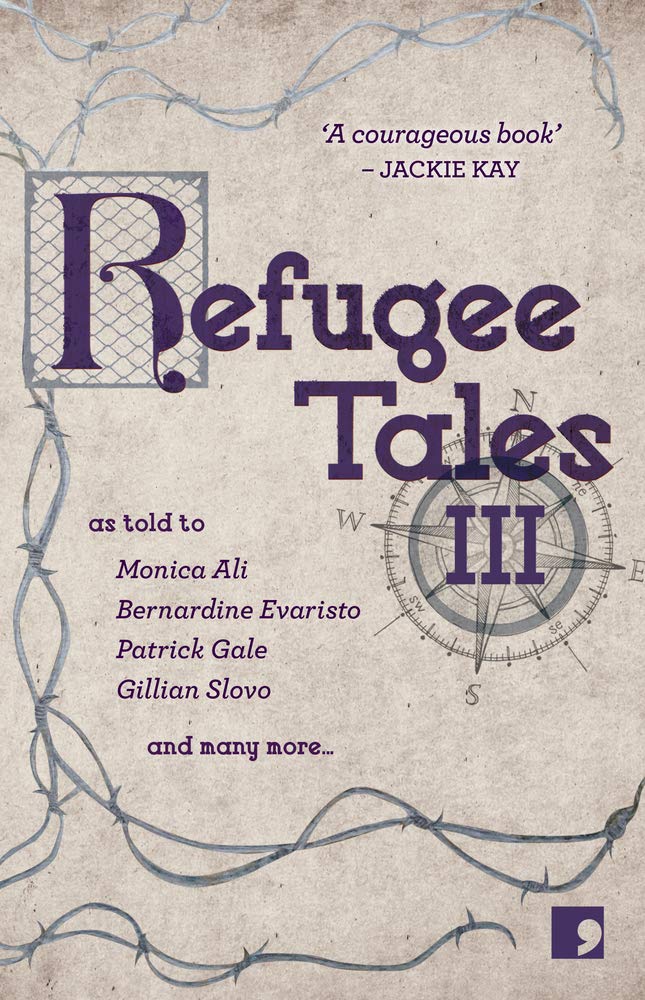
Picking up any of the Refugee Tales collections reminds us of just how different we are. If you’re looking for moving, honest, and raw books about refugees, start here. Some of us are parents, some of us are divorced, some of us have lost loved-ones; we have different jobs, educational backgrounds, religions, beliefs. I could go on. But it’s easy to overlook the fact that all of this goes for refugees, too.
This breadth of difference is highlighted most simply in the Chaucer-esque titling of these stories: The Teacher’s Tale, The Father’s Tale, The Applicant’s Tale, The Stateless Person’s Tale. I was struck several times by the very idea alone that some of these refugees are professional dancers, care workers, father’s without sons, orphans, fishermen. They’re anyone and everyone, because they’re people.
Read More: The Refugee Tales III Review
Shatila Stories
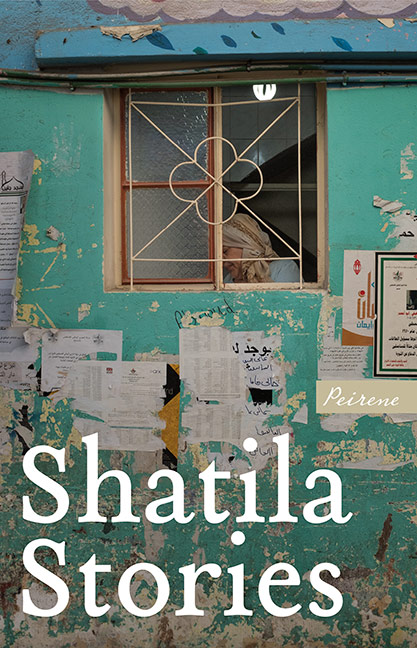
Like the Refugee Tales published by Comma Press, Shatila Stories from Peirene Press is a novel comprised of a collection of fiction — inspired by first hand experiences — by refugees who have made perilous journeys and sacrificed so much for the sake of surviving and living the life every human has a right to live.
Khaled Hosseini, author of The Kite Runner, described Shatila Stories thus: ‘This remarkable novel isn’t about the refugee voice; it is born from it and told through it. On every page, the glint of hope for dignity and a better life is heartbreakingly alive.’ As Hosseini says, this is more than other books about refugees. This is a must-read book of refugee live.
Children of Our Age by A.M. Bakalar
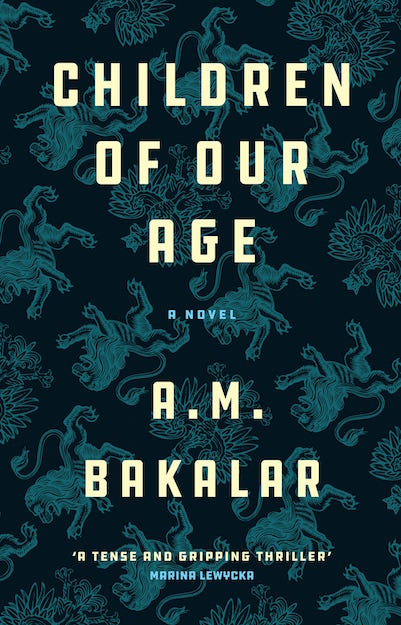
Children of Our Age, one of the most affecting books about refugees, follows the lives of a small group of Polish people living in the UK, their differing circumstances and outlooks on life, and how they gradually become dramatically entwined with each other – for better or for worse.
Karol, a ruthless entrepreneur, and his wife become a success in the eyes of his Polish community in London, despite the fact that his status has come at the cost of his fellow countrymen.
Mateusz and Angelika, a loving couple, cling to the belief that good things will eventually happen to them, despite all evidence to the contrary. And two brothers, one violent and one mentally unstable, both fantasise about returning to their homeland one day.
As the book sheds more light on their lives in the UK and their pasts in Poland, we find out how much a simple encounter can change the course of someone’s life forever. These snapshots into the lives of Polish immigrants provide much needed context to situations that outsiders might be quick to oversimplify or stigmatise.
By providing authentic points of view from those who battle everyday stereotyping from ignorant locals, Bakalar manages to humanise what might otherwise be background characters in the eyes of many by showing the depth of the desires, despairs, delights and dreams that they live and feel in their hearts, just like everyone else.
Second Class Citizen by Buchi Emecheta
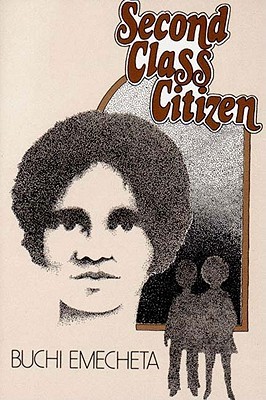
Adah is a Nigerian woman living in London in the 1970s and, as the title suggests, she lives her life being treated as a second class citizen. To even make it to London, Adah had to break free of many tribal expectations. Her entire childhood Adah was told that the United Kingdom was a place of dreams, a kind of utopia, and so she fought for an education in hopes of one day living there.
As Adah grew up, she repeatedly turned down offers of marriage to be her own woman, before realising that marriage was her only hope of getting to the UK. But once there, Adah realises that the UK is not what she hoped. It is full of violence, poverty and inequality. Now she not only endures discrimination and hate because of her gender, but because of her race, as well.
Second Class Citizen may take place in the 70s, but so many of the issues that Adah faces remain relevant today. This book might be short, but it is powerful and just one of many books about refugees that is worth your time.
Small Island by Andrea Levy
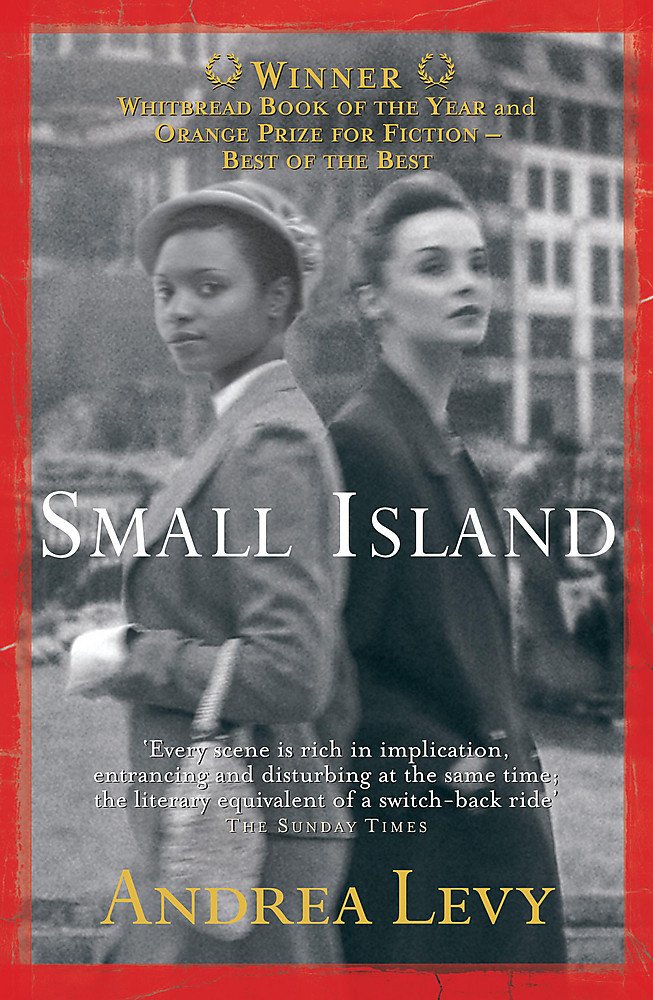
In 1948 Gilbert Joseph arrives in London from Jamaica on the HMT Empire Windrush, and soon after joined by his new wife, Hortense. They are part of a new generation of Jamaican immigrants in post-war England. The Josephs are taken in by Queenie Bligh, a woman that Gilbert knew during the war, and her husband Bernard, himself a veteran, who has troubles of his own from his time at war.
Hortense is hopping for a better life, while Gilbert, who served in the RAF during WWII, expects to return a hero. However, he soon realises that life as a Black civilian in the UK is very different and he struggles with this new identity.
Meanwhile, Hortense, who has come from some means, is shocked by the realities of their new living situation and treatment as bot only Blacks, but as poor ones. Small Island, one of the great books about refugees, is told from all four of their perspectives, brilliantly interweaving their stories with the realities of everyday racism and classism in the UK.
October by Zoë Wicomb
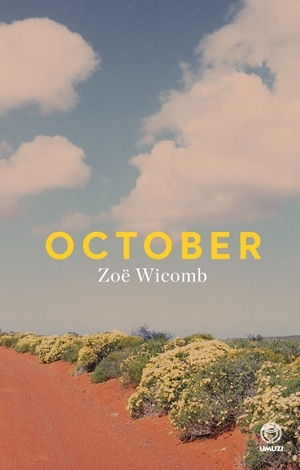
The antagonist of October, Mercia Murray, straddles two worlds: her home of 25 years, Scotland, and her homeland of South Africa. Mercia feels compelled to leave Scotland after her partner of many years, a Scottish poet, inexplicably leaves her.
Middle-aged, childless and fiercely independent, Mercia now finds herself wondering where home really is. Scotland now feels foreign and isolating to her, but South Africa is equally unfamiliar, the wounds of Apartheid still healing. Mercia’s family is classified as coloured, not black, and she is an outsider there.
Much of October takes place in South Africa and examine’s the country’s tumultuous history with race relations. However, as Mercia struggles to understand where she belongs in the world, the book delves further into her life as an immigrant in Scotland, and its lasting impact on her. If you’re in the UK and looking for staggeringly powerful books about refugees, this is certainly one of them.
The Year of the Runaways by Sunjeev Sahota
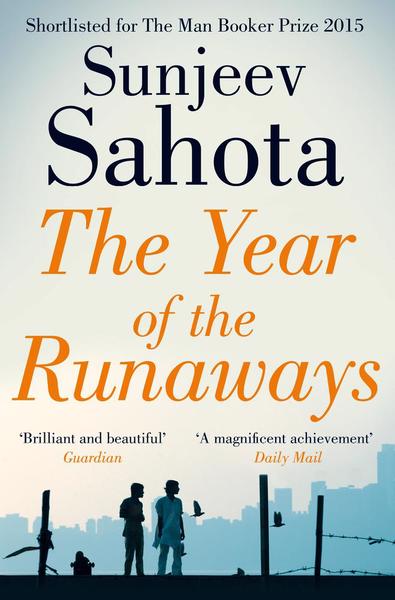
Avtar, Randeep and Tarlochan are three newly immigrated Indian men living together in Sheffield. Their status in the UK is precarious, and they in squalor as they struggle to make ends meet working whatever jobs they can get. Then there is Narinder, Randeep’s visa-wife who lives on the other side of town and stores all his things in case immigration shows up for an inspection.
As the eponymous year unfolds, secrets about each one will be revealed, forever altering their lives and the way they interact with each other. The Year of the Runaways is a harrowing look at the lengths immigrants will go to in order not to return home, and the reasons why. One of the must-read books about refugees, without question.
Brick Lane by Monica Ali
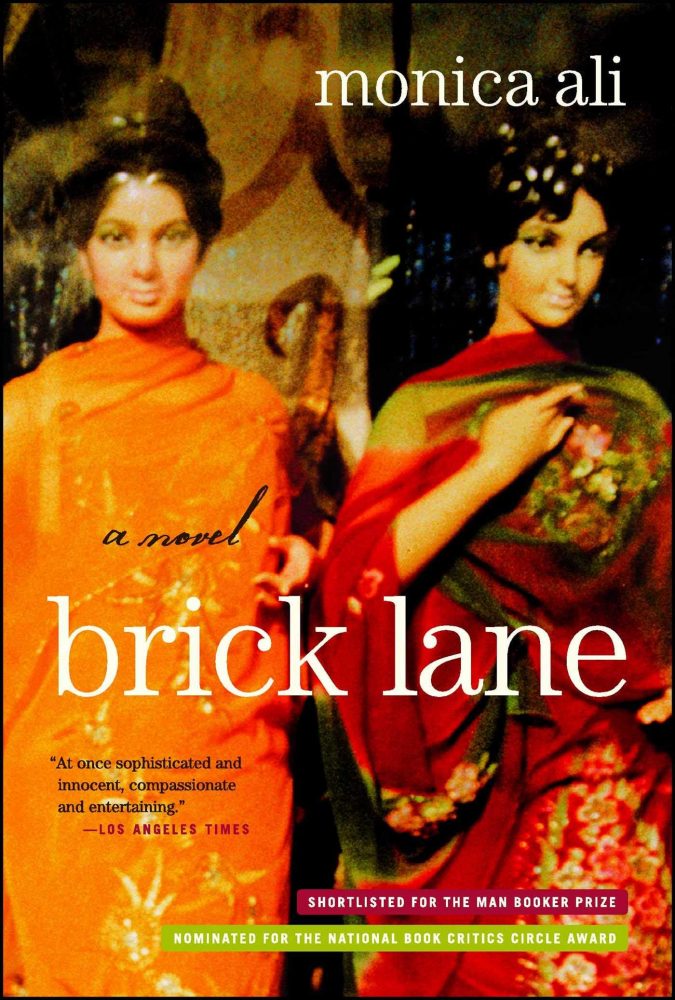
Two sisters attempt to take hold of their destinies as their lives are shaped by the seemingly inescapable bonds of fate. Nazneen’s pretty and rebellious sister Hasina runs away into a “love marriage” with the man of her dreams, while plain Nazneen is sent off to London to live in an arranged marriage with a man twenty years her senior.
Not knowing a word of English, and feeling isolated through her dependance on her new husband, Nazneen has to come to terms with her new life. As Nazneen embarks on a love affair with the fierce and radical Karim, and her sister’s romantic relationship descends into violence, will she learn how to adapt to immigrant life and take control of her fate?
Ali’s slow-burning first novel, Brick Lane, takes the well-known culture shock isolation trope and works it into a sophisticated and empathetic account of the immigrant experience, with characters that live and breathe as opposed to falling into cliché.
The dichotomy of the two sisters’ situations – choosing love that turns sour and being forced into a cold relationship that instead blossoms over time – is covered by Ali with both depth of feeling and an appropriate amount of light-hearted humour.
The Life of a Banana by P.P. Wong
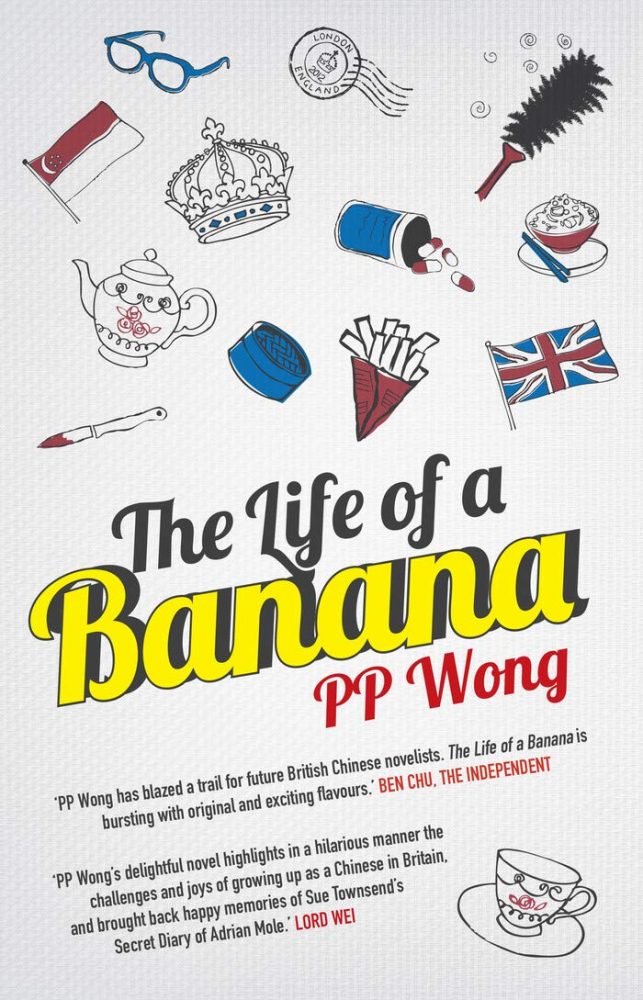
Xing Li grew up in London, she is a Londoner, and so are her friends. Yet all her life she’s been called a banana: yellow on the outside and white on the inside. So not matter how British she is, she’s never truly felt as if she fits in there.
After her mother tragically dies, Xing Li is forced to move in with her aunt and uncle and start at a new school where she finds herself constantly bullied. The worse the bullying get, the more Xing Li finds her otherness defining her. She also experiences growing pressure from her relatives to conform to their traditional values.
The Life of a Banana is about the struggle of first generation British citizens who struggle to fit in in their own country, while also trying to navigate and understand their own heritage. Although the book is written for younger audiences, Xing Li’s story is an important one for everyone to hear.
The Hiding Place by Trezza Azzopardi
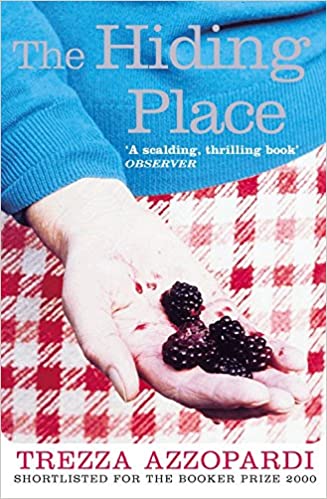
At only one-month-old Dolores Gauci nearly burns to death in a horrific fire that claims her hand and permanently disfigures her.
Because of this tragedy, her father consider her a disappointment, and although her mother loves her fiercely, this helps shapes her entire identity. Something that she already struggles with as the daughter of a Welsh mother and Maltese immigrant father.
Frank Gauci is a miserable gambler who despairs over his brood of six daughters, and makes life insufferable for each of them. As a working-class immigrant family in 1960s Cardiff, the family regularly wrestles with xenophobia and classism.
To make matters worse, Franks only concern is making money, and he’s willing to exploit and endanger his family to do so. The Hiding Place is a heartbreaking book about the lengths people will go to in order to fit in and to “make it” as well as how destructive families can be.
A Distant Shore by Caryl Phillips
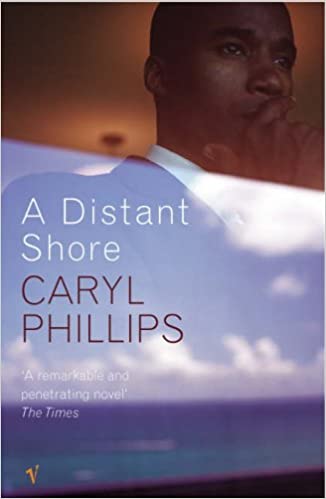
A Distant Shore tells the story of two people desperate for love and the secrets they hold that prevent them from attaining it. Dorothy, a retired schoolteacher who recently moved to a small village, meets Solomon, an immigrant from an unnamed country in Africa, who works as a night watchman.
As the novel recounts the journeys these two lost souls have taken on the way to their first meeting, we learn about the poisonous obsession with a younger man that ruined Dorothy’s marriage, as well as the brutal reality of both Solomon’s experiences as a soldier before he immigrated to England, and the everyday hardships he suffers from those who consider him to be an outsider.
Through these two perspectives, Phillips explores the themes of both English and national identity, with the gradual revelations of the protagonists’ intimate secrets and insecurities providing insight into what it means to truly belong somewhere, or to someone.
This is Where I am by Karen Campbell
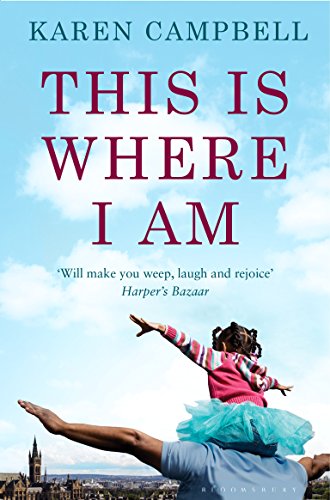
I absolutely loved this book, but I hesitated to add it due to not being an own voices representation. However, I felt more non-English based books needed to be repped. So it’s here, but at the bottom. This book isn’t perfect, but I think it does an excellent job of portraying racism in Scotland.
This is Where I Am is split into two narratives: Abdi and Deborah. Abdi is a Somali refugee seeking asylum in Glasgow with his young daughter, Rebecca, who doesn’t speak. He doesn’t want to be there, he misses his home in Somalia.
He struggles to learn the language and adjust to the new culture, to find a job, and a home that’s suitable for Rebecca. He faces constant racism just for walking down the street, but he meets many good and well-intentioned people, too.
Deborah is a 50-something Glaswegian and a grieving widow. In an effort to distract herself, she signs up to be a mentor at her local Scottish Refugee Council, and is assigned to help Abdi. She is well meaning, but doesn’t always get it right. The details of their lives unfold for us in realtime, as they themselves slowly build a friendship and learn more about each other.
Read More: Learn about the experiences of ‘Comfort Women’ with these books
Seeking Fortune Elsewhere by Sindya Bhanoo
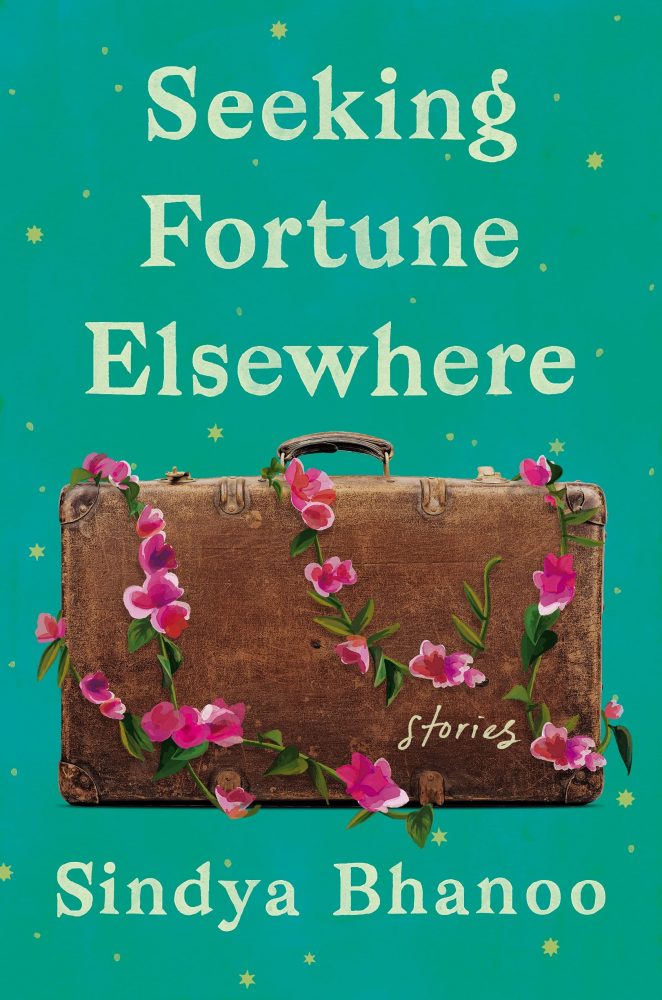
While it isn’t a book about refugees, and it isn’t UK-focussed, Seeking Fortune Elsewhere, as its title makes clear, is a collection of short stories about the Indian immigrant experience. Seeking Fortune Elsewhere is a collection of eight staggering short stories that centre around distance: geographic, familial, and emotional.
The collection’s first story focusses on an elderly upper-middle-class woman who has found herself in a retirement village, courtesy of her daughter who now lives and works in the US. She and the other residents form a hierarchy based on what country their children immigrated to. This is a tale about those who are left behind, rather than what lays before those who seek their fortunes abroad.
In its second, story, an Indian professor at a US university has come under fire by the press after years of treating his Indian students like family. Some have claimed he took advantage of their closeness, getting them to do free labour for him.
This story very subtly pokes and prods at racism and xenophobia without expressing raw anger at those things. Its a quietly rageful tale that hits all the harder because of that.
Seeking Fortune Elsewhere is a collection of tales of immigration that are all united by themes of distance and connection, but they demonstrate an enormous variety of emotion as people struggle with losing their parents and their children, their homes and their jobs.

